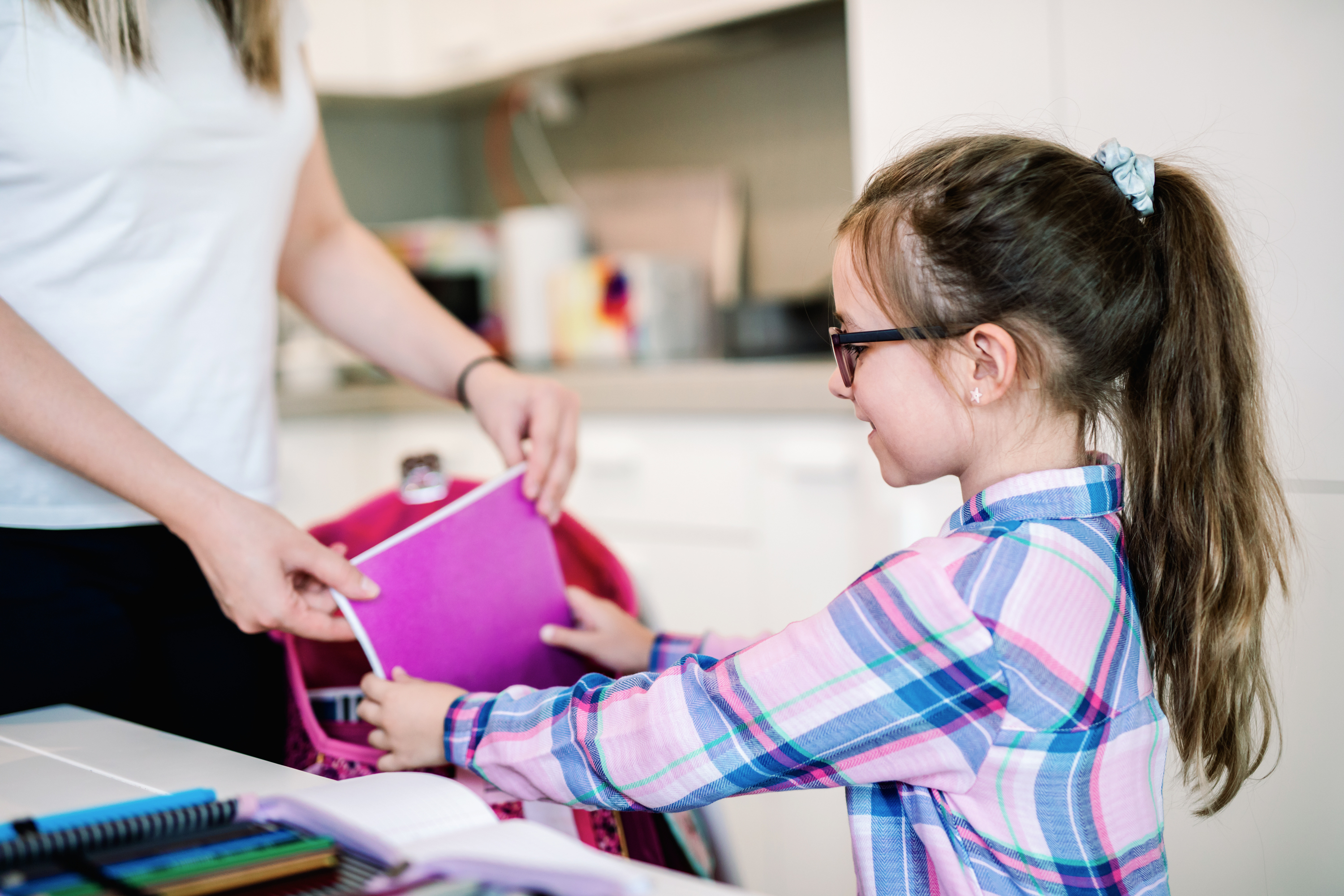Blog
Planning and Organizational Skills for Students

It’s time to head back to school. Your child has a packed backpack and organized desk, but are they really ready? Even if the space is organized, it is important to be mentally prepared as well. Every single day, carve out time where you are actually planning the next day. You can even pack their backpack and lunch the night before. When they wake up in the morning knowing what’s expected of them, it sets them up for success and they will feel less stressed.
A simple checklist, perhaps the world’s original organizing tool, endures. Lists are at the heart of all organizational skills, so this is a great place to start. Perhaps this is because in the act of creating it, we naturally think about time management and goal setting. It is a good idea to write the needed time-frame on the list. For example, if your child has an exam coming up, you could teach them how to:
• Break down their revision material into a series of tasks
• Use a calendar to plan how they’re going to complete those tasks within a set time-frame
A checklist can even be helpful for kids too young to write if they dictate it to you. Make sure to discuss what’s important and realistic to accomplish that day. Adding a hug or a snack break as tasks can keep it fun!
Now that everything is virtual, it may be time to embrace an electronic family calendar. It allows for shared reminders and you can color-code each family member’s personal calendar, allowing everyone to see what is happening every day. While digital calendars help you keep track of the small details, it’s also helpful to have big events posted on the wall for everyone to see in real life. It should be in central spot for everyone to see. To keep the command center more visually organized, use each family member personal color from the digital calendar. You can mark in colored pens, Post-its, or even colored index cards, to grab everyone’s attention at a glance.
Routines and structure play a crucial role in developing planning skills and eliminate a majority of conflicts. Take homework, for example. Let’s say you have an established routine that your children do their homework every weeknight between 6 pm and 7 pm. There won’t be conflict related to homework because it’s simply “the way we do things in this family”. But in a family without routines, ensuring that your children do their homework becomes a daily battle. Of course, even established routines will occasionally need to be reinforced or modified. To help solidify the homework routine, it’s a good idea to set up a small part of the house as a study area. Having a study area that’s free of distractions will help your children develop a homework routine. It may also help your children if you also devote that time to doing your own “homework”. This could be paying bills online, taking an online course, or reading a book to learn about a new topic.
As parents, we (hopefully) have planning and organizational skills that we’ve developed over the years. But we often take these skills for granted and forget that our children don’t yet have those skills. Kids can feel overwhelmed, frustrated, and stressed because of the demands they face at school. Some might even say they hate school. But if they have planning and organizational skills, their attitude toward school and academics will be different.
Reference:
Randazza, Janelle. “15 Back-to-School Tips to Keep You Organized All Year Long.” Reviewed, 1 September 2020. Retrieved 4 May 2021. https://www.reviewed.com/parenting/features/back-school-tips-keep-you-organized-all-year-long
Wong, Daniel. “10 Guaranteed Ways to Motivate Your Children to Do Well in School.” Daniel Wong, 6 January 2021. Retrieved 4 May 2021. https://www.daniel-wong.com/2019/05/13/motivate-children-to-do-well-in-school/

